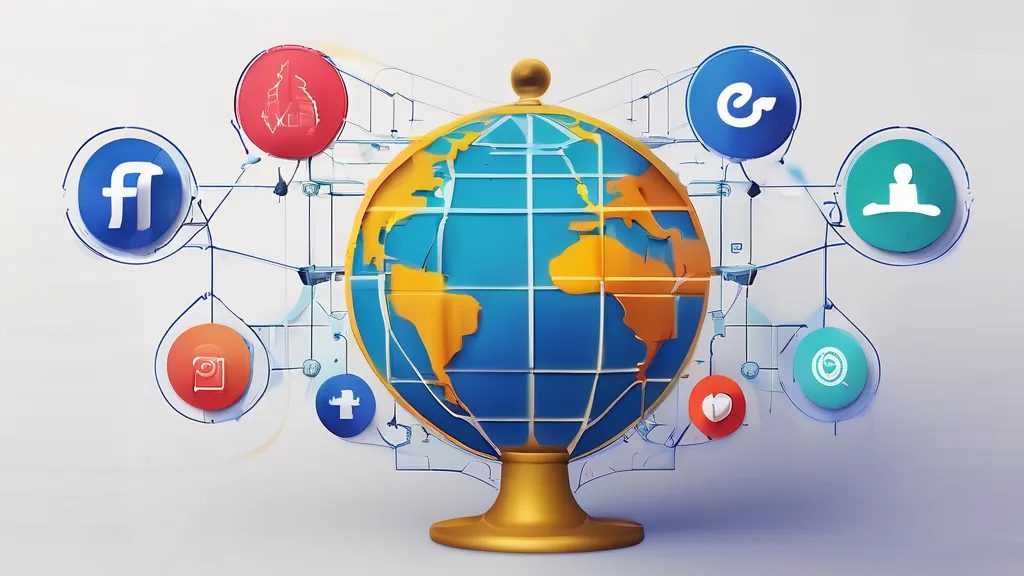The Battle for Truth: Unmasking Influence Operations in the Digital Age
Unveiling the Tactics and Countermeasures

- Influence operations threaten global democracy.
- Tech companies use AI to combat misinformation.
- Education and media literacy are crucial defenses.
- Global case studies reveal diverse tactics and responses.
Introduction
In recent years, as digital platforms have become the epicenter of information exchange, a new battleground has emerged: the fight against influence operations. These operations, designed to manipulate public opinion and influence political outcomes, pose a significant threat to the integrity of democratic processes worldwide. As we delve into the intricacies of these covert campaigns, it becomes clear that the fight for truth in the digital age is more critical than ever.
Understanding Influence Operations
Influence operations are coordinated efforts by state or non-state actors to sway public opinion or policy through deceptive means. These operations often exploit social media platforms to disseminate false information, create division, and undermine trust in institutions. According to a report by the Oxford Internet Institute, over 70 countries have engaged in organized social media manipulation campaigns as of 2023.
The Mechanics of Manipulation
The tactics employed in influence operations are varied and sophisticated. They range from the creation of fake accounts and bot networks to the use of deepfakes—AI-generated videos that appear authentic but are entirely fabricated. The Threat Analysis Group at Google regularly uncovers such operations, highlighting their complexity and the challenge of identifying and neutralizing them.
One example is the 2020 U.S. election, where foreign actors used social media to spread disinformation, leading to widespread confusion and mistrust. Similarly, during the COVID-19 pandemic, misinformation campaigns fueled vaccine hesitancy, illustrating the real-world consequences of such operations.
Combating the Threat
Technological Solutions
Tech companies are at the forefront of the battle against influence operations. Platforms like Facebook, Twitter, and Google have implemented AI-driven tools to detect and remove false content. For instance, Twitter’s use of machine learning algorithms to identify bot accounts has resulted in the suspension of thousands of fake profiles.
Policy and Regulation
Governments worldwide are enacting policies to curb the spread of disinformation. The European Union’s Digital Services Act aims to hold online platforms accountable for the content they host. In the U.S., the Honest Ads Act seeks to increase transparency in online political advertising.
However, regulation presents its own set of challenges. Critics argue that stringent policies could infringe on free speech or be used by authoritarian regimes to stifle dissent. Thus, striking a balance between security and freedom remains a contentious issue.
The Role of Education
Media Literacy
Beyond technological and regulatory measures, education is a crucial tool in combating influence operations. Media literacy programs that teach individuals to critically evaluate information can empower citizens to discern fact from fiction. Finland’s national education curriculum, which emphasizes media literacy, has been lauded as a model for other nations.
Public Awareness Campaigns
Public awareness campaigns can also play a significant role. In 2023, the “Think Before You Share” initiative, launched by several global NGOs, aimed to educate users on the dangers of sharing unverified information. Such efforts are essential in fostering a more informed and resilient public.
Global Perspectives
Influence operations are not confined to any single region; they are a global phenomenon. In countries like Russia and China, state-sponsored campaigns are used to control narratives and suppress dissent. Meanwhile, in democracies like India and Brazil, political parties have been accused of employing similar tactics to gain an electoral edge.
Case Studies
A striking example is the 2022 Brazilian election, where misinformation campaigns on WhatsApp played a pivotal role in shaping public opinion. Conversely, Taiwan has successfully countered influence operations by leveraging technology and public-private partnerships, offering a blueprint for other nations.
The Future of Influence Operations
As technology evolves, so too will the methods used in influence operations. The rise of generative AI and the proliferation of Internet of Things (IoT) devices present new avenues for manipulation. Experts warn that future campaigns may be more personalized and harder to detect.
Ethical Considerations
The ethical implications of combating influence operations are profound. While technological solutions offer promise, they raise questions about privacy and surveillance. Ensuring that measures respect individual rights is paramount.
Conclusion
The battle against influence operations is a multifaceted challenge that requires concerted efforts from governments, tech companies, educators, and citizens alike. While progress has been made, the ever-evolving nature of these operations demands vigilance and adaptation. As we navigate this complex landscape, fostering a culture of critical thinking and transparency will be key to safeguarding democracy in the digital age.
References
As we continue to confront these issues, what role should individuals play in ensuring the integrity of information they consume and share? The call to action is clear: remain informed, question sources, and engage in dialogue about the future of information integrity.